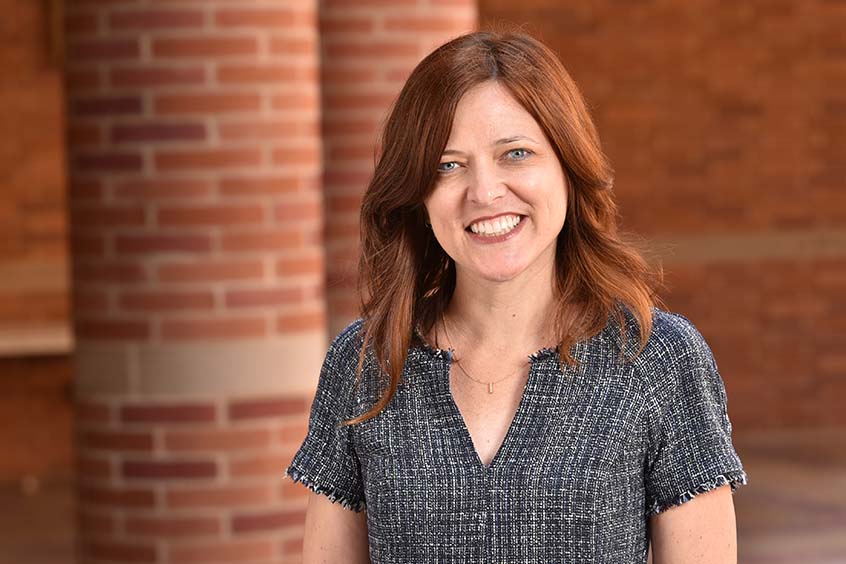
The time has passed, you think. It has been years since you’d graduated. Why go back to school? You have a career and family. Who needs homework, tests, and grades? Business school will suck up all your extra time. And you won’t even get paid for it!
Not upfront, at least. Graduate school is an investment, a chance to step back, think, exchange ideas, test yourself, and round out your skill sets. That’s what Curtis Linton did. A Utah native, Linton enrolled in the University of Oxford’s executive MBA program two years ago. For him, business school was a second chance after losing his professional development business to strategic errors and investor in-fighting. Armed with his MBA, Linton now runs a school and a foundation, a second chance to regain what he had lost. Coming into the MBA program, he expected to simply master business fundamentals he’d missed after studying the humanities and film production. That was just a myth – one that didn’t account for the rich experience he’d accumulated over a 25-year career.
“EDUCATION IS WASTED ON THE YOUNG”

University of Maryland’s Gretchen MacLeod
“Learning has been quite different this time around as compared to my first Master’s I studied for in my twenties,” Linton admits. “At that time, I had not “experienced” life and so application was mostly theoretical. I went to school to learn what I did not know. This time around, learning has been so much more applicable. I am at school to learn how to define what I have already experienced. I have taken the learning more seriously this time around, treating the knowledge gained as even more important than the grades that are earned. But much to my surprise, I value the learning much more now.”
This difference doesn’t just apply to poets. Twenty years ago, Gretchen MacLeod earned her degree in accounting. Today, she heads up finance for a nonprofit with a $136 million dollar operating budget. To many, graduate school might seem like a waste to a seasoned professional like MacLeod. However, her experience as an EMBA student at the University of Maryland has given her a new appreciation for the saying, “Education is wasted on the young.”
“As an 18-year-old in business administration, I would never have understood the importance of human capital,” she writes. “Balance sheets, to me, at the time, seemed boring and irrelevant. After 20+ years in the workforce, being faced with real-world budgets with shortfalls and needing to let team members go, I can appreciate the true value of business management.”
GRADES DON’T MATTER…UNTIL YOUR CLASSMATES SCORES HIGHER
You’re too old. It’s too hard. It takes too much time. Those are just a few myths that the Class of 2019 encountered when weighing whether to join an executive MBA program. Rebecca J. Von Der Heide, a senior research scientist at Amazon, heard all three. They didn’t dissuade her from starting at Georgia Tech – even though she already held a Ph.D. in cognitive science.
“Several people in my class were initially concerned that they had been out of school for too long and may have forgotten too much to be successful in the executive MBA program. This did not turn out to be the case. In reality, people who studied the course materials for the recommended amount of time and worked hard on individual and group assignments did exceptionally well in the program even if they had been out of school for a long time.”
Indeed, the executive MBA upended many expectations. Israel Askew, for one, had been told that grades don’t matter in business school. Once he met his classmates at the University of Texas, his competitive juices quickly kicked into gear. Think grades are a myth? J. Peter Rubin, a decorated plastic surgeon who has published over 200 peer-reviewed articles, had been assured by peers that he was ready for business school. Looking back, the University of Pittsburgh MBA describes his experience as “learning a new language” and “drinking from a fire hose.”
“Fortunately, you adjust after a while and get into a rhythm of learning,” he jokes.
AN MBA STUDENT CAN COME FROM ANYWHERE
Maybe the biggest myth, however, is that there is a certain “type” or “profile” of an executive MBA student – often deemed high potentials on the cusp of the c-suite. Turns out, says Nina Lotfi, EMBAs can come from any industry or function.
“We had engineers, physicians, nurses, teachers, a technologist and many other professions in our cohort, each with different working styles and ambitions,” observes the Northwestern Kellogg EMBA grad. “The key is knowing yourself and being honest about what you want to gain from b-school before you start the journey.”

UCLA Anderson’s Allison Hill
Each year, Poets&Quants asks the top business schools to nominate students to be part of our Best & Brightest Executive MBAs – the students who “personify excellence in their programs through their contributions to the class, academic performance, extracurricular involvement, professional achievement, personal intangibles, and unique personal stories.” As part of the nomination process, P&Q askes these Best & Brightest to share what they know to be the biggest myths about executive MBA programs…and how they would respond to these myths now that they are graduates. From boring classes to quantitative demands, here are the 15 biggest myths about executive MBA programs that the Class of 2019 encountered.
1) Myth: I don’t have time.
Reality: “My life was rich and full before I started Anderson so it was challenging to imagine how I was going to fit everything in. People warned me that it was going to be too much. My EMBA program changed my relationship with time though, a change that I’m sure will serve me the rest of my life. I’m better at prioritizing, better at saying no, and better at recognizing pockets of time to use to my advantage. I treat time more like an investment now, something I actively participate in managing vs something where I have no control.”
Allison K. Hill, UCLA (Anderson)
2) Myth: You are too old to go back to school.
Reality: “For a while, I had thought I may have missed the prime years to go back to business school, as I assumed most MBAs were 2-3 years out of college. However, in the EMBA program, I was actually on the younger end of my cohort. This provided me with so many great mentors and examples for my career. My class has such a range of ages, experiences, and backgrounds – including a number of doctors. No matter where you are in your career, doing your MBA will help you to hone your leadership, strategy, and management skills.”
T. Robert Zochowski, Columbia Business School

University of Minnesota’s James Pierce
3) Myth: It’s going to be really painful to sit through 10 hours of class over two days on weekends.
Reality: “I found myself so energized from what I was learning and absorbing that I quickly came to look forward to my ‘MBA weekends’ – especially if I was experiencing a stressful week. In such cases, I’d look forward to those weekends to be engrossed and interact with my professors and classmates who came with different backgrounds and experiences.”
Dr. Janis L Green, University of Maryland (Smith)
4) Myth: If you have achieved so much in your career, why do you need an MBA?
Reality: “There’s only one time you stop learning, and even then, it’s only for a split second before you get just as curious about the afterlife! Going back to school, you will assuredly learn something. No age or amount of professional accomplishment changes that. To go back to school and learn absolutely nothing takes enormously more effort than you think!”
James Pierce, University of Minnesota (Carlson)
5) Myth: You will have no life while working and going to school.
Reality: “I still had date nights, bike rides, and time with friends. The grey cloud of homework followed me around, but somehow, I made it all fit by prioritizing and focusing on what I was doing in the moment.”
Amanda Davis, Arizona State (W. P. Carey)





Questions about this article? Email us or leave a comment below.